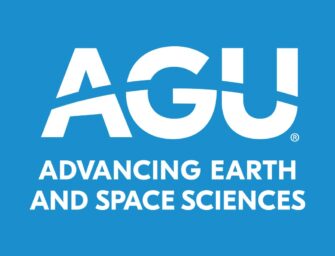#AGU21 highlights from Thursday, Dec. 16
Highlights from Thursday, December 16:
Day 4 at #AGU21 was centered around Diversity, Equity and Inclusion, and was full of sessions aimed to information to transform workplace culture in ways that will increase innovation, discoveries and solutions in Earth and space Sciences.
As we are reach the end of this year’s meeting, check out some of today’s highlights.
Eos coverage of #AGU21 today:
- WAMPUM: An Indigenous-Designed Path to Sea Level Rise Adaptation. Northeastern and mid-Atlantic tribal nations lived sustainably on the coastline for centuries before colonization. How can their experiences inform strategies for sea level rise adaptation?
- Projection: $110 Billion in Repairs for Russian Pipelines on Permafrost. Permafrost thaw is a major threat to pipelines in the Russian Arctic, particularly those carrying natural gas.
- Wildfires May Alter the Nitrogen Cycle—and Air Pollution. Research indicates that wildfires could be bolstering soil emissions of air pollutants that contribute to smog and climate change.
#AGU21 in the news:
- NASA’s Perseverance rover finds organic chemicals on Mars. SPACE.com, 16 December. It’s not a detection of Mars life, but it’s certainly intriguing.
- Early High-Velocity Impactors May Have Sealed Venus’ Hellish Fate. Forbes, 15 December. One or more high-velocity planetary impactors early in Venus’ history may be the trigger that led our sister planet down its current inhospitable path.
- Melting of the Thwaites Glacier could rewrite the global coastline. PBS Newshour, 15 December. A warming atmosphere is creating concern in the Arctic Circle and on the continent of Antarctica. (featuring new AGU fellow, David Holland!)
- Pandemic weather: the link between COVID-19 and lightning. Cosmos, 16 December. In a finding with implications for everything from climate change to the future of wildfires, researchers have found an unexpected knock-on effect of COVID-19: a significant reduction in the number of lightning bolts worldwide.
Here are some highlights from Day 4:
- In a keynote address Deb Haaland, U.S. Secretary of the Interior and first Native American to serve as a cabinet secretary, spoke on the importance of diverse perspectives in scientific fields to ensure communities are not left behind.
- Dr. Kelly Mack gave a lecture to launch the LANDInG program, AGU’s new professional development program for developing competencies in DEI leadership. She spoke on developing networks and tools for a stronger and more inclusive scientific community.
- U.S. Secretary of Energy Jennifer Granholm discussed achieving President Biden’s goal of net-zero carbon emissions by 2050 during a plenary lecture.
- Scientists discussed how the changing climate will affect rising heat, intensifying storms and flooding, and wildfire in three press conferences.
What to watch for tomorrow, December 17:
- Scientists from NASA will discuss the biggest story in the solar system: the Juno mission to Jupiter.
- A panel from the 2021 United Nations Climate Change Conference (also known as COP26) will deliver a plenary on progress and prospects from the meeting, and the role of the larger AGU community in them.



There are no comments
Add yours